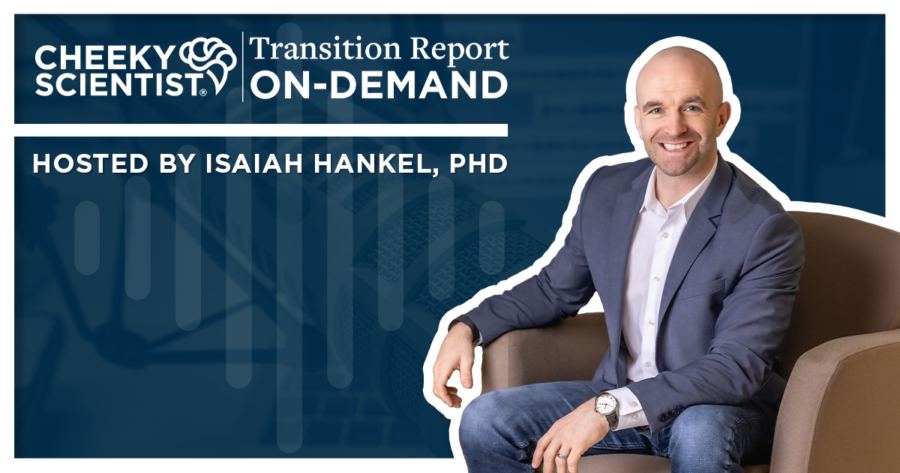Hosted By

Chief Executive Officer Cheeky Scientist

Join Isaiah as he explains what the hiring funnel is and how not understanding this concept is causing you to make mistakes that show you’re an amateur
Here’s a quick rundown of this week’s episode…
- First, Isaiah gives an example of a hiring funnel, something you need to understand if you want to be successful in industry
- Next, Isaiah presents the most common mistake PhDs make by not understanding the hiring funnel: spending too much time on their resumes
- Finally, Isaiah discusses two additional mistakes that show your lack of understanding of industry workings and how you can fix them
From This Week’s Show…
How The Hiring Funnel Works
Many PhDs fail to get hired because they don’t understand the inner workings of the industry hiring funnel – and as a result, they end up prioritizing the wrong things during their job search.
The term hiring funnel refers to the process that companies use to narrow their job candidacy pool.
In each phase, candidates are faced with more stringent criterion, resulting in most candidates getting funneled out.
Let’s say a company receives 250 resumes for an open position. Of those, 20 to 30 will make it to the phone screen. Of those, 10 to 20 candidates will be offered a video interview. These 10 to 20 candidates may have up to five or six video interviews before 1 or 2 are invited for a site visit.
As you can see, the funnel continues to narrow, often at a fast pace, so you don’t get too many chances to prove that you’re the right person for the job.
Not understanding this is causing you to make unnecessary mistakes.
Why Spending A Lot Of Time On Your Resume Is A Mistake
The first is putting all of your energy into your resume. Many PhDs spend hours working on their resume. But when you consider the hiring funnel, expending most of your energy on your resume is not the best use of your time.
The first way that companies weed out candidates is by using applicant tracking software. Remember, most companies receive hundreds of resumes for an open position and very large companies often receive thousands.
So, despite your diligent work on your resume, you could be out of the candidate pool with just a click of a button.
Or even worse, your resume won’t be considered at all because of timing. Most companies stop reading resumes after they’ve read 10% of those that come in.
So, if you apply on the second day of a job posting, you may be automatically rejected simply based on timing. I know it’s frustrating, but that’s why you need to find ways to bypass the funnel altogether.
Two More Mistakes That Show You Don’t Understand How Industry Works
Now let’s assume that you’ve managed to get to the phone screen stage. The mistake that many PhDs make at this stage is that they underestimate the importance of this initial interaction.
Just because this part is performed by HR, doesn’t mean that it’s not important. The person you talk to has the ability to decide whether or not you move onto the next step.
You should take this very seriously – be professional, be prepared to describe your strengths and demonstrate your industry know-how. The person you’re speaking to may not understand the technical details of your role, but they’re experts in understanding whether you’re a good fit or not.
The third mistake that PhDs make is that they are secretive. A common question that comes up during the screening process is “Are you interviewing anywhere else?”
Many react to this question by eagerly saying “Of course not!” But having multiple interviews and multiple offers actually shows the company how desirable you are. Being honest can actually help expedite the hiring process.
If you’re ready to start your transition into industry, you can apply to book a free Transition Call with our founder Isaiah Hankel, PhD or one of our Transition Specialists. Apply to book a Transition Call here.










